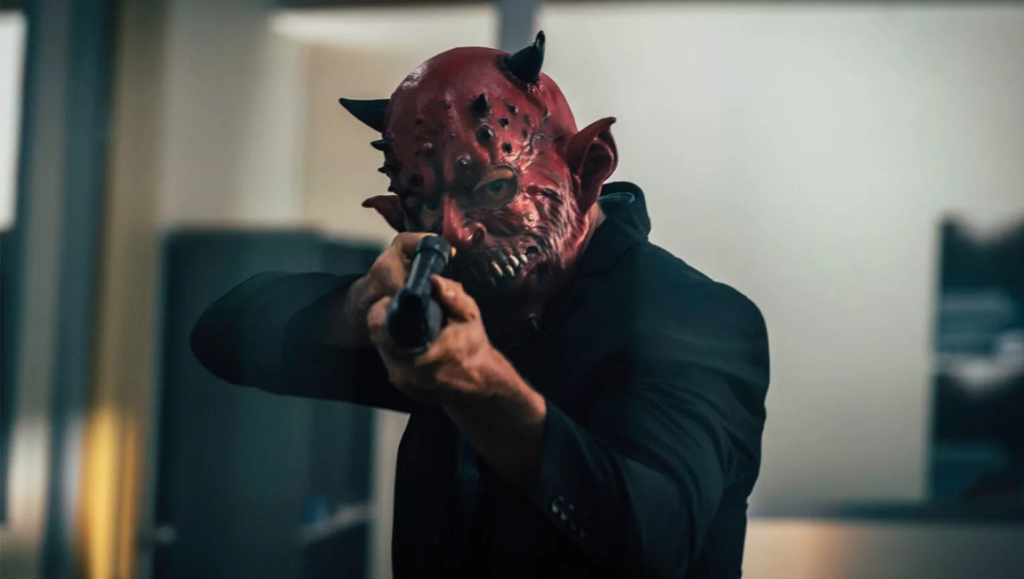Bloody Hell boasts obvious talent both behind and in front of the camera, but is belabored by its stale tics and tonal indecision.
As film festivals have gone largely virtual in the face of our new pandemic reality, many critics have lamented the now-absent communal aspect of these events; gone are the post-screening conversations and interviews, the mingling in long lines, and the thrill of watching a movie wash over a rapt audience. Particularly hard hit are “midnight madness” style screenings; horror, like comedy, frequently works better with a crowd. One imagines watching Bloody Hell with such a crowd, settled in late at night after a long day of more reputable fare, probably a few drinks deep, ready to cut loose and get rowdy. Alas, any energy that might have infused Bloody Hell with an extra-textual quality is lost when viewed at home, alone, and the film’s issues become more difficult to paper over. Directed by Alister Grierson and written by Robert Benjamin, Bloody Hell is a horror-comedy that forgets to be scary and gets bogged down by an obnoxious sense of humor. Ben O’Toole stars as Rex, an improbable blend of Ash from the iconic Evil Dead films and Mac from Its Always Sunny in Philadelphia. After a whiplash-inducing prologue, where he thwarts a bank robbery and gets sent to prison for his efforts, Rex gets released only to find that he’s become a social media star. Deciding he needs a vacation, and hoping to avoid his adoring public, Rex hops a plane to Finland. As luck would have it, he’s immediately kidnapped and strung up in the basement by what appears to be the Finnish version of the Texas Chainsaw Massacre clan.
Grierson and Benjamin (who also edited the film) burn through plot at a ludicrous pace, keeping things lively with ostentatious fast cutting and lots of flashy camera moves. Once Rex is relegated to the basement holding pen, the film’s biggest misstep is thrown into sharp relief. Here, the filmmakers have literalized Rex’s interior monologue, personified on screen as a second Rex that only he can see. This move casts O’Toole in a dual role that mostly requires he talk to himself, although the film makes clear that no one else can see this psychic projection. Less clear is whether or not Rex is supposed to be schizophrenic, as his visualized id becomes pushier and more caustic. Whatever the case, the gimmick wears thin quickly, particularly once we meet Alia (Meg Fraser), the one family member who doesn’t enjoy the practice of kidnapping and murdering tourists for food. At this point, the film sort of turns into a weird rom-com; it pumps the brakes on mocking Rex’s alpha male shtick and instead begins indulging it. Throw in some Family Guy-style cutaway gags and Bloody Hell starts getting stale, fast. Still, this is a strong cast and there’s a sharp sense of humor buried somewhere under all of the faux-ironic posturing and annoyingly flashy style. O’Toole is at least a legitimate find, and Grierson and Benjamin certainly have talent; if they can get some of these belabored tics out of their system, they could actually make something pretty special. Fingers crossed.
Originally published as part of Nightstream 2020 — Dispatch 2.
Published as part of Before We Vanish | January 2021.


Comments are closed.